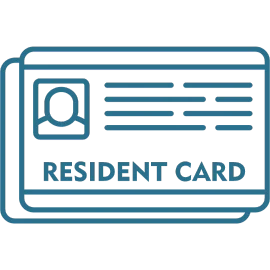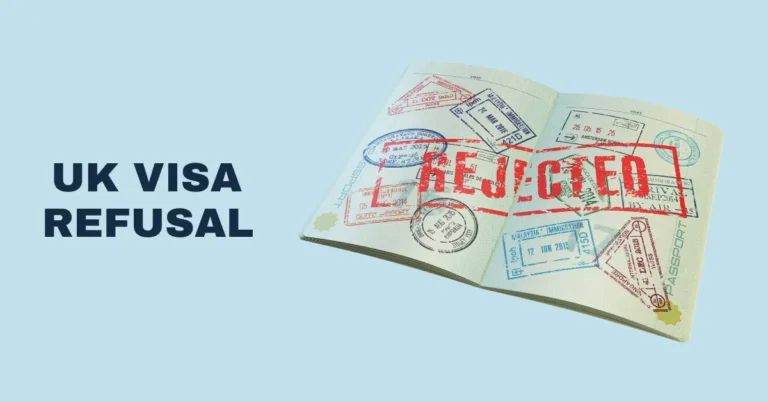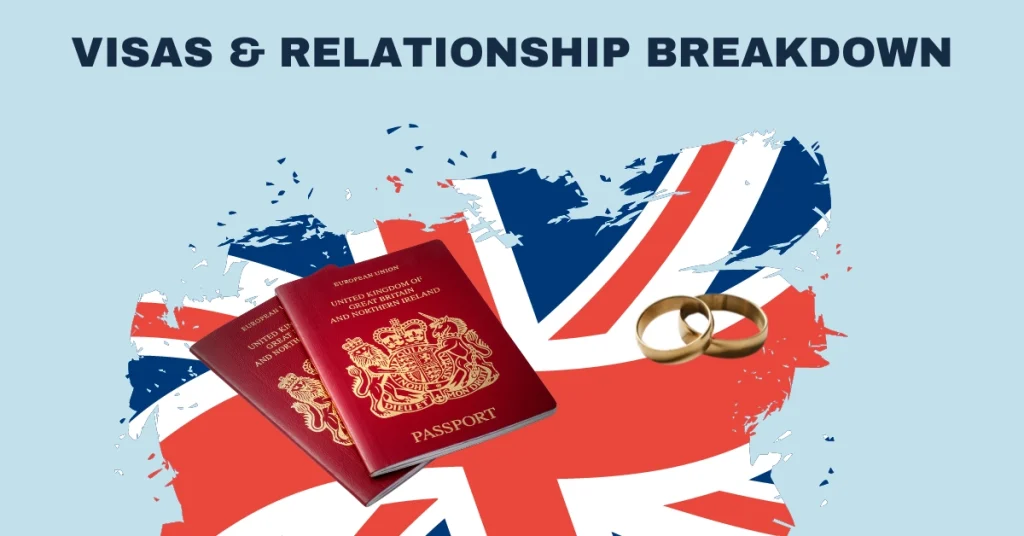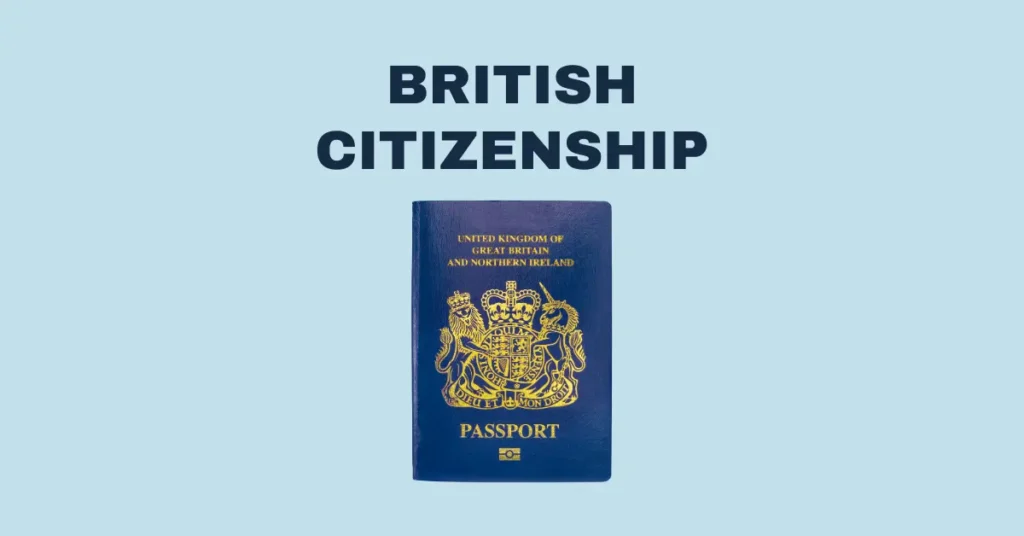If your UK visa application is denied, you’ll receive a letter from the Home Office outlining the reasons for the refusal and your options for appeal or administrative review. If you choose to appeal, you must adhere to the specified timeframes. Typically, you have 14 days to appeal if you’re within the UK and 28 days if you’re outside the UK.
Appealing an immigration decision involves challenging the Home Office’s ruling, typically based on an error in assessment, misinterpretation of the law, or a violation of your human rights.
According to official UK government figures, approximately 15% of visa applications are denied, resulting in 247,280 refusals in 2021 alone. These figures also indicate that nearly half of all appeals filed are successful. Therefore, your chances of obtaining a UK visa after a refusal are roughly 50%, depending on the complexity of your case.
Explore your options with JPS Immigration in navigating a UK visa refusal appeal or finding the optimal path forward. Connect with our seasoned immigration lawyers for a complimentary telephone consultation at +44 (0) 1293 522 275 or reach out via email at [email protected].
Factors that can lead to a UK visa refusal
UK visa applications are often subject to scrutiny under the Home Office’s general grounds for refusal. These grounds encompass various factors that may lead to a denial of your visa, primarily based on your suitability, validity, and eligibility for entry into the UK. Here are some common reasons why a UK visa application may be refused:
- Financial Inadequacies: Failing to meet the financial requirements, such as demonstrating sufficient income and savings to support yourself during your stay, can result in visa refusal.
- Points-Based System Shortfalls: Under the UK points-based system (PBS), applicants must accumulate a certain number of points based on their qualifications, skills, and other factors. Falling short of the required points can lead to visa denial.
- Misrepresentation and Falsified Information: Intentionally providing false information to the Home Office, whether in the application form or through fake documents, is a serious offense that will almost certainly result in visa refusal.
- Noncompliance with Information Requests: Failing to provide the Home Office with requested documentation or information can also lead to visa denial.
- Unsuitability Concerns: If you have unspent criminal convictions, pose a threat to national security, or exhibit a history of rough sleeping, your visa application may be refused due to concerns about your suitability for entry into the UK.
- Immigration Rule Violations: Previous breaches of immigration rules, such as overstaying your visa or owing debts to the NHS, can also lead to visa refusal.
- UK Entry Ban: If you are subject to a UK entry ban, your visa application will be denied.
- Sham Marriages or Relationships: If the Home Office believes your marriage or partnership is not genuine, your visa application may be refused.
In the event of a visa refusal, seeking expert guidance from an immigration lawyer is crucial. They can assess the specific reasons for your refusal, identify potential grounds for appeal, and provide robust representation to the Home Office on your behalf.
For instance, if your visa was denied due to discrepancies between the income figures you provided and those held by HMRC, a skilled immigration lawyer can help you address these discrepancies and present a compelling case for reconsideration.
Remember, understanding the common grounds for UK visa refusals and seeking expert legal counsel can significantly increase your chances of a successful appeal.
Who can appeal against a Home Office decision?
Your decision letter from the Home Office will outline your options for challenging their decision. Depending on your circumstances and visa type, you may be eligible to pursue one of the following avenues:
- Administrative Review (AR): If you believe the Home Office made an error in processing your application, you may request an AR. This option is primarily applicable to Points Based System (PBS) visa applications and their dependents.
- Appeal to the First-tier Tribunal (Immigration and Asylum Chamber): You may have the right to appeal your decision to the First-tier Tribunal if the Home Office’s decision infringes upon your human rights. This includes scenarios involving:
- Refusal of an asylum or humanitarian protection claim
- Revocation of protection status
- Denial of a human rights claim
- Revocation of British citizenship
- Adverse decisions under the EU Settlement Scheme (EUSS)
- Refusal or revocation of EUSS family permits, Frontier Worker Permits, or S2 Healthcare Visitor visas
- Judicial Review: In certain cases, you may be eligible for a Judicial Review if your immigration solicitor believes the Home Office has misinterpreted the law during your application process.
It is important to note that appeal rights are generally not granted for visitor visas or short-term student visas. Consulting with an immigration solicitor can help you determine your eligibility and explore alternative options, such as submitting a new application or pursuing a different visa type.
Reapplying may be the most efficient approach if the refusal stemmed from inadequacies in your initial application. Simultaneous appeal and reapplication may also be feasible for entry clearance from outside the UK.
UK immigration appeal process
Receiving a visa refusal from the Home Office can be a disheartening experience. However, it is important to remember that you may still have options for challenging the decision and securing your desired visa. The UK immigration appeal process provides a framework for individuals to contest unfavourable visa decisions, ensuring that their circumstances are thoroughly considered.
Enhancing Your Chances of Success
To increase your likelihood of a successful appeal, it is crucial to meticulously follow these steps:
1. Seek Expert Guidance
While not mandatory, engaging an experienced immigration solicitor is highly recommended. Their expertise in the intricacies of the appeal process, coupled with their in-depth understanding of appeal grounds, can significantly enhance your chances of a favourable outcome.
2. Verify Appeal Eligibility
Ascertain whether you have the right to appeal. The eligibility criteria vary depending on the type of visa you applied for and the reasons for the refusal.
3. Comprehend the Refusal Basis
Carefully review the Home Office’s decision letter to grasp the specific reasons for your visa refusal. This understanding will guide your appeal strategy and assist in gathering relevant evidence.
4. Prepare a Robust Appeal
Formulate a compelling appeal case that clearly outlines the grounds for challenging the decision. Gather supporting documentation, such as letters of support, financial statements, or medical reports, to substantiate your claims.
5. Initiate the Appeal Process
Within the specified timeframe, typically 14 days for those within the UK and 28 days for those outside, complete and submit an online appeal application.
6. Provide Supporting Evidence
Attach any relevant documents or evidence that corroborates your appeal grounds. These materials will strengthen your case and demonstrate your eligibility for the visa.
7. Request an Oral Hearing (Optional)
Indicate whether you wish to attend an oral hearing to present your appeal in person or prefer a decision based solely on the submitted information.
8. Await ECM Review
Upon submitting your appeal application, it will be evaluated by an Entry Clearance Manager (ECM). If your case is deemed strong and supported by substantial evidence, you may receive a positive decision at this stage.
9. Proceed to Tribunal Hearing
If the ECM cannot reach a decision, your appeal will be referred to a full hearing by the First-tier Tribunal (Immigration and Asylum Chamber).
10. Attend Your Hearing
If you opted for an oral hearing, you will receive a ‘Notice of Hearing’ with the scheduled date. Be prepared to present your case effectively and answer any questions raised by the tribunal.
11. Reap the Benefits of Expert Representation
While engaging an immigration solicitor is not mandatory, their expertise can prove invaluable. They will guide you through the complexities of the appeal process, ensuring your case is presented in a manner that maximises your chances of success.
How long does it take to get a visa after appeal?
The processing time for a UK visa appeal can vary depending on the complexity of your case, the type of visa refusal, and the strength of your application. Typically, the appeal process takes between 6 and 12 months.
If your appeal is heard by a Tribunal, you will likely not receive a decision on the day of your hearing. Instead, the decision is usually issued approximately one month later. In the event that your appeal is successful, the Home Office may choose to appeal the decision or reverse their previous stance and grant you the visa.
What are my options if my visa appeal is denied?
If your initial appeal against a visa refusal has been unsuccessful, there are still several avenues you can pursue to secure your desired visa and remain in the UK. These options include:
- Appealing to the Upper Tribunal (Immigration and Asylum Chamber): If you believe that the First-tier Tribunal made a legal error in their decision, you can bring a further appeal to the Upper Tribunal. This option is available if you believe the Tribunal misapplied the law, used the wrong legal principles, failed to follow the correct legal process, or lacked sufficient evidence to support their decision.
- Submitting a Fresh Application: Depending on the specific reasons for your initial refusal, you may have the option to submit a new application for the same type of visa. This approach is most suitable if the grounds for refusal have changed or if you can address the previous concerns with additional evidence and documentation.
- Exploring Alternative Visa Options: If submitting a fresh application for the same visa is unlikely to be successful, consider applying for a different type of visa that aligns with your current circumstances and eligibility. An immigration solicitor can guide you through the various visa options available and assess your chances of success for each.















































